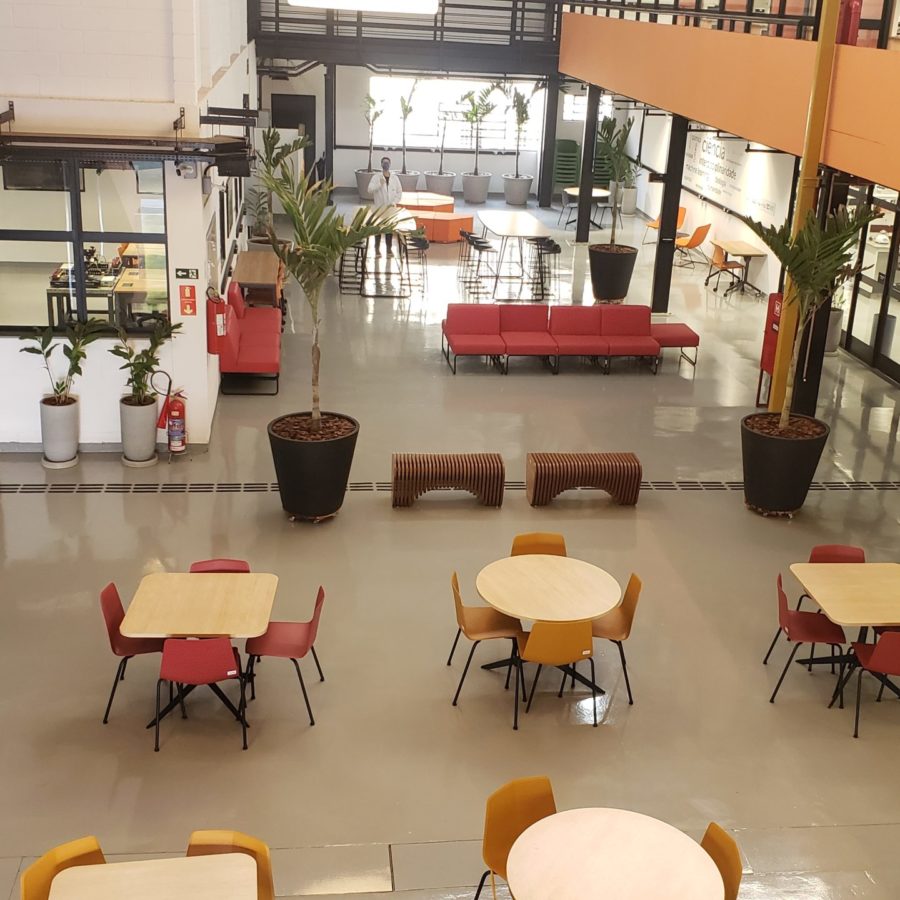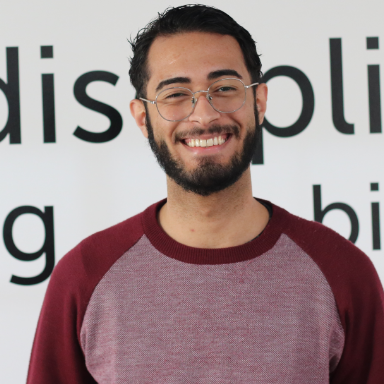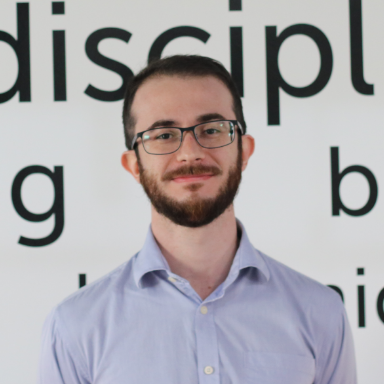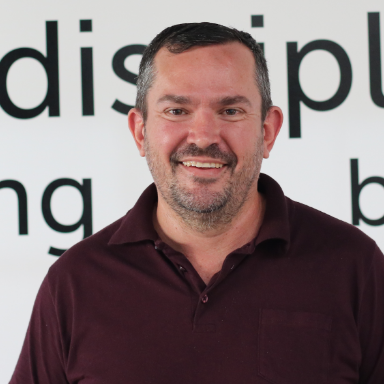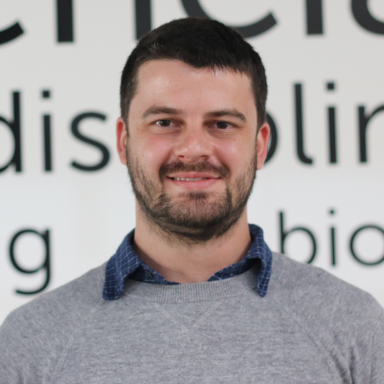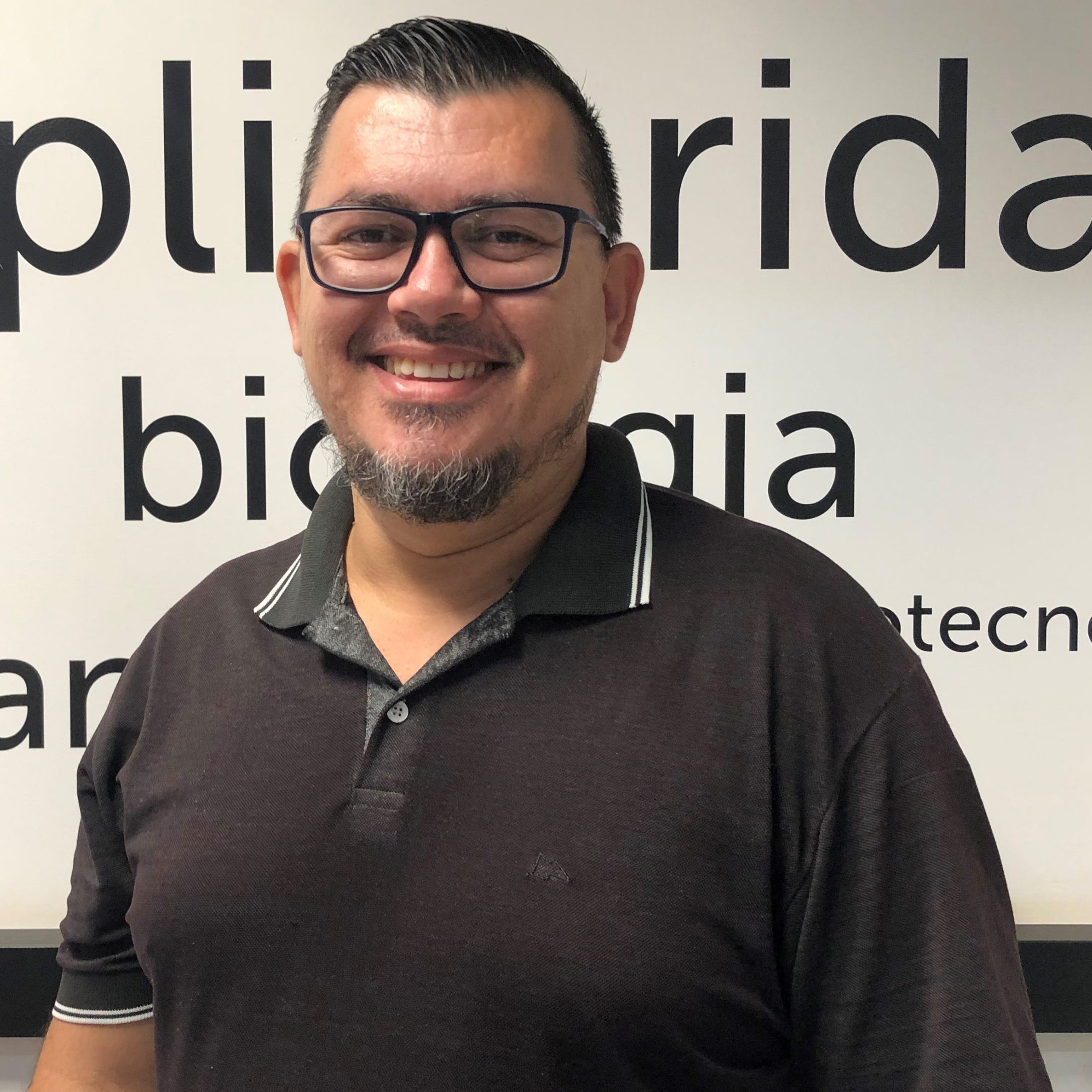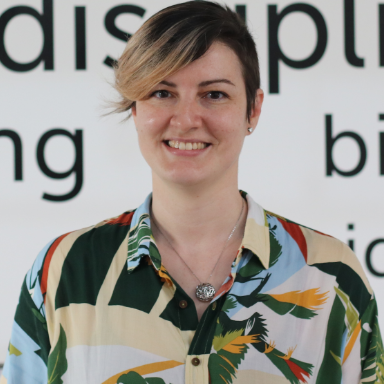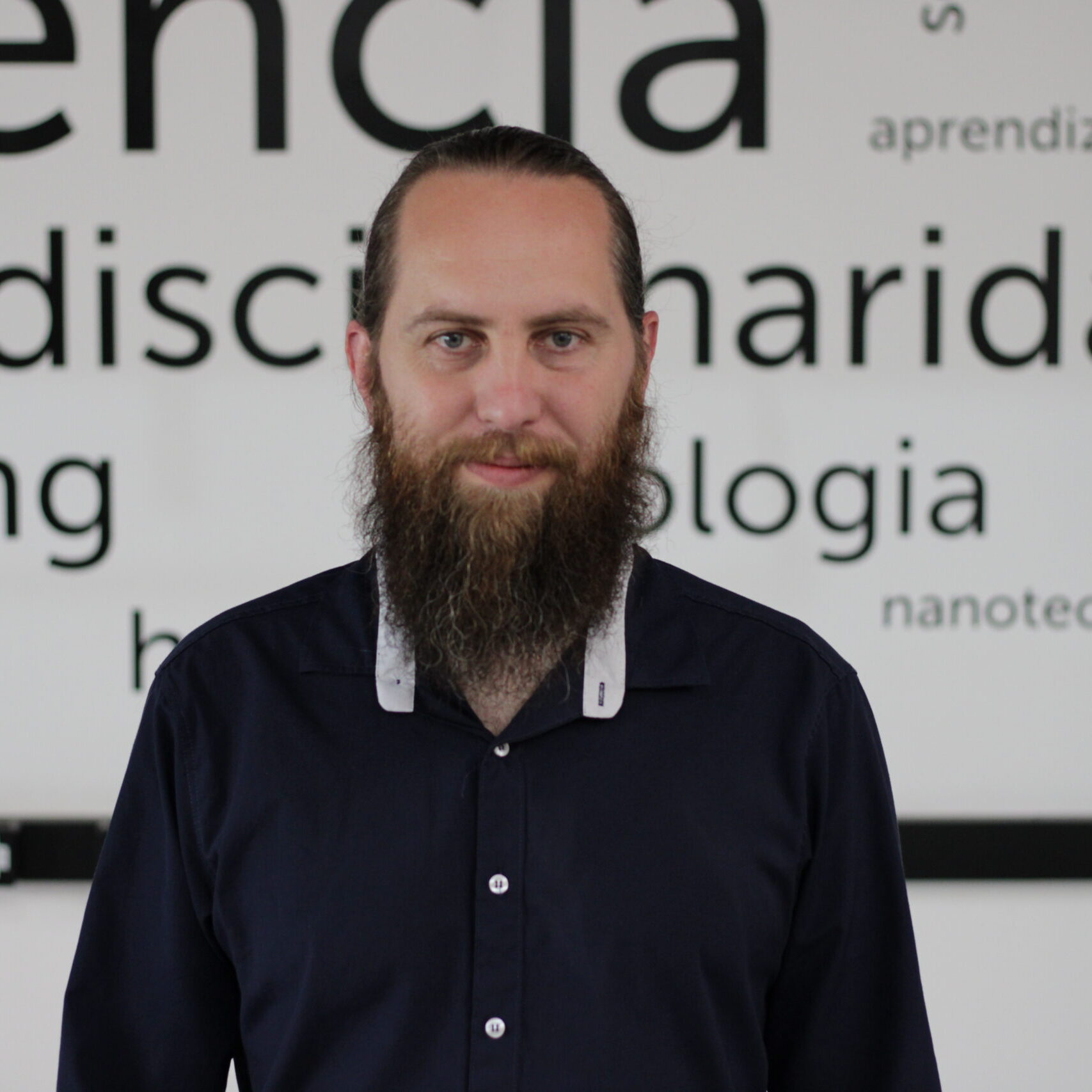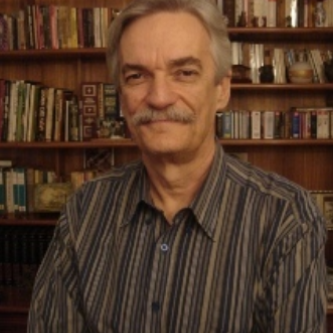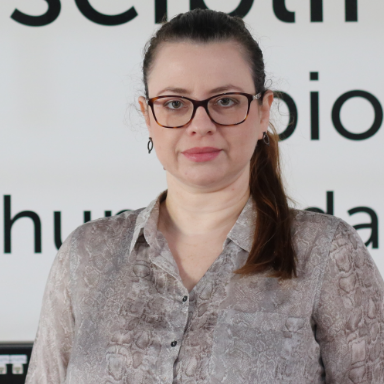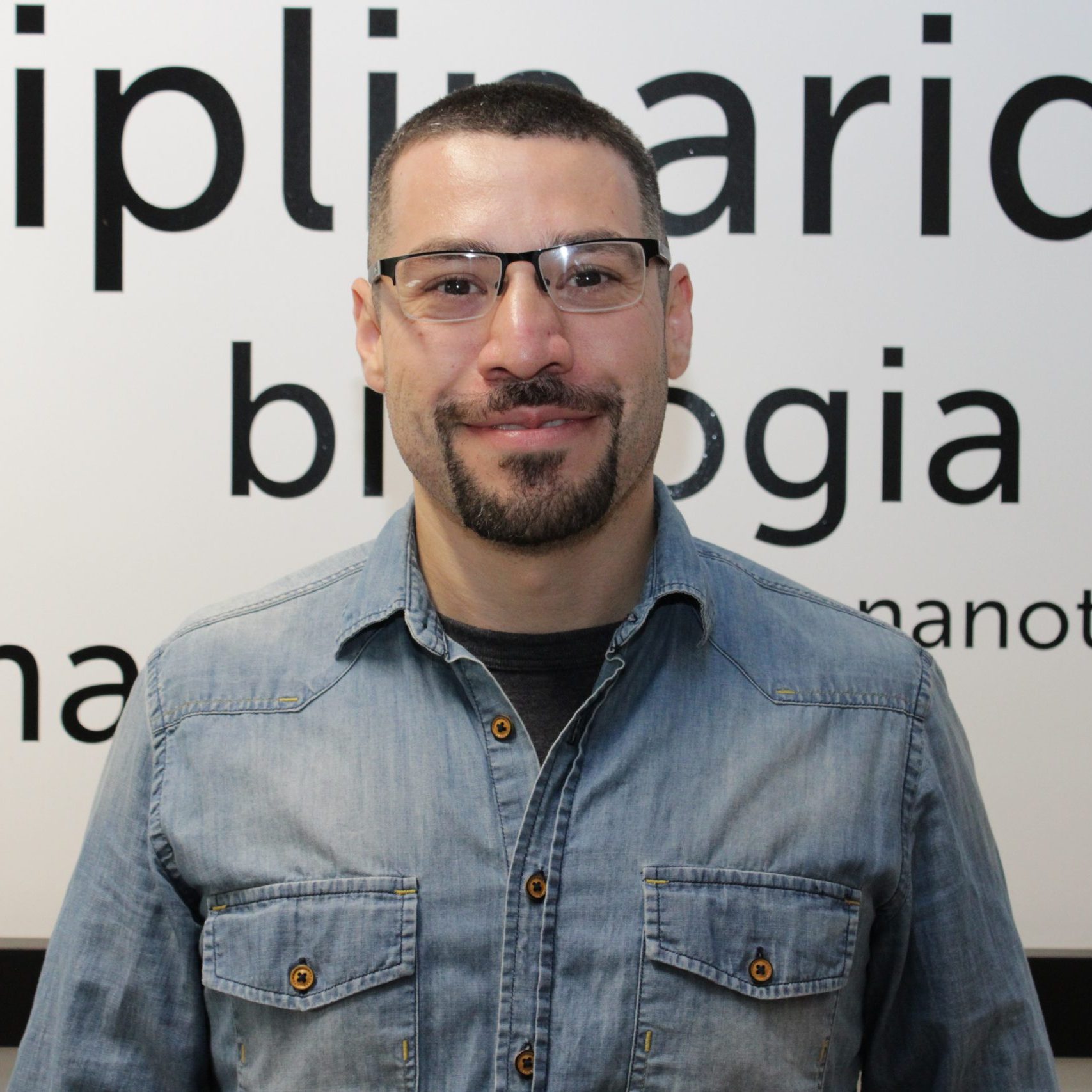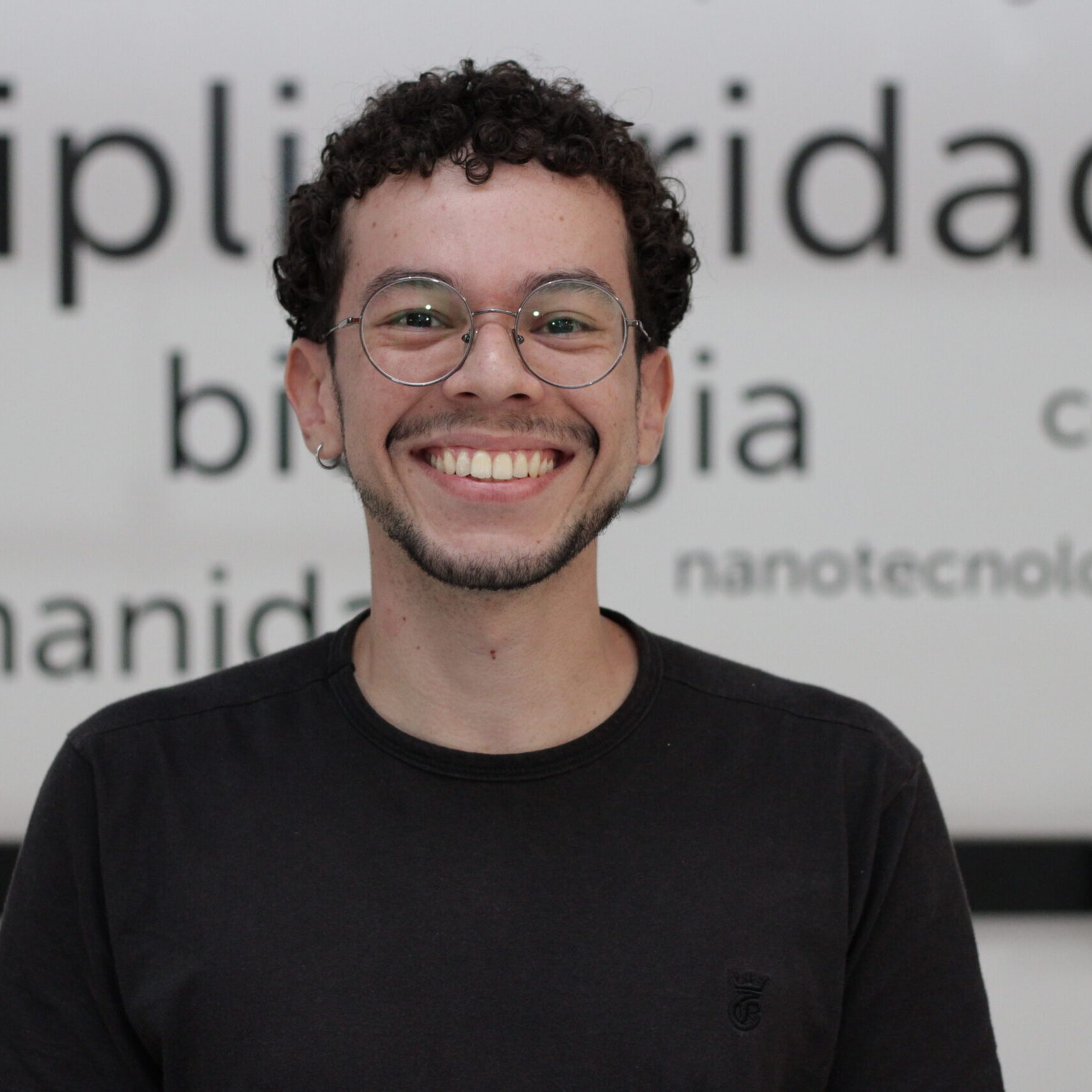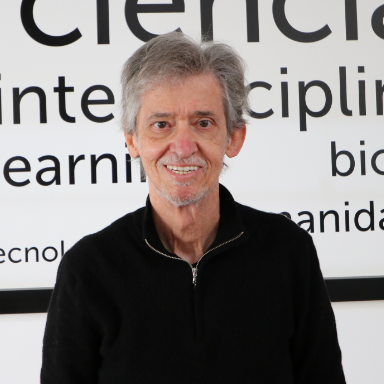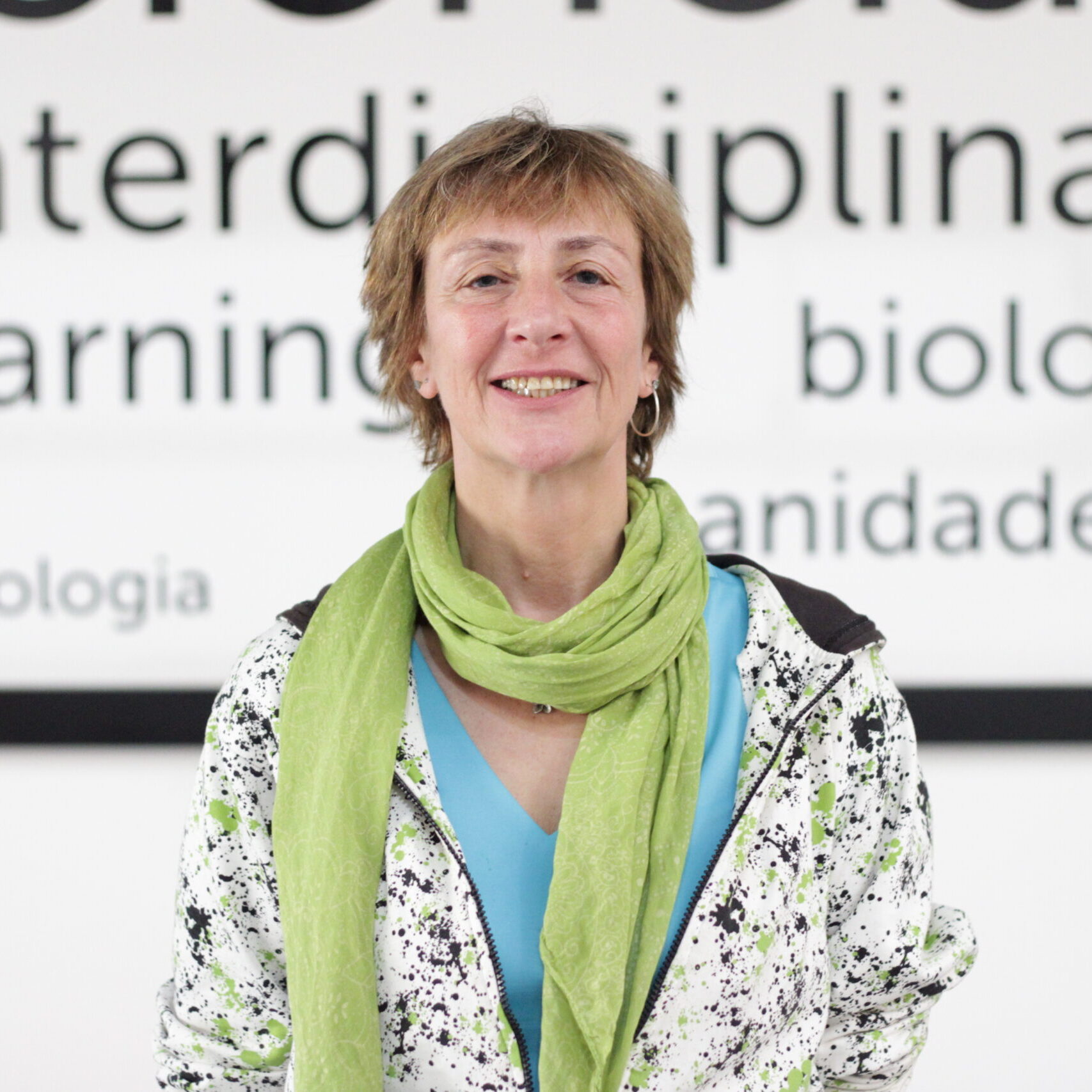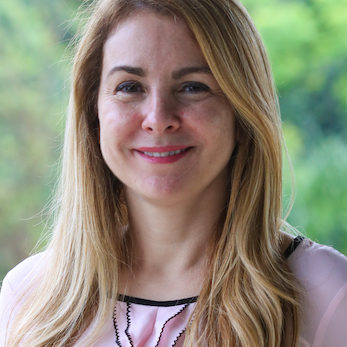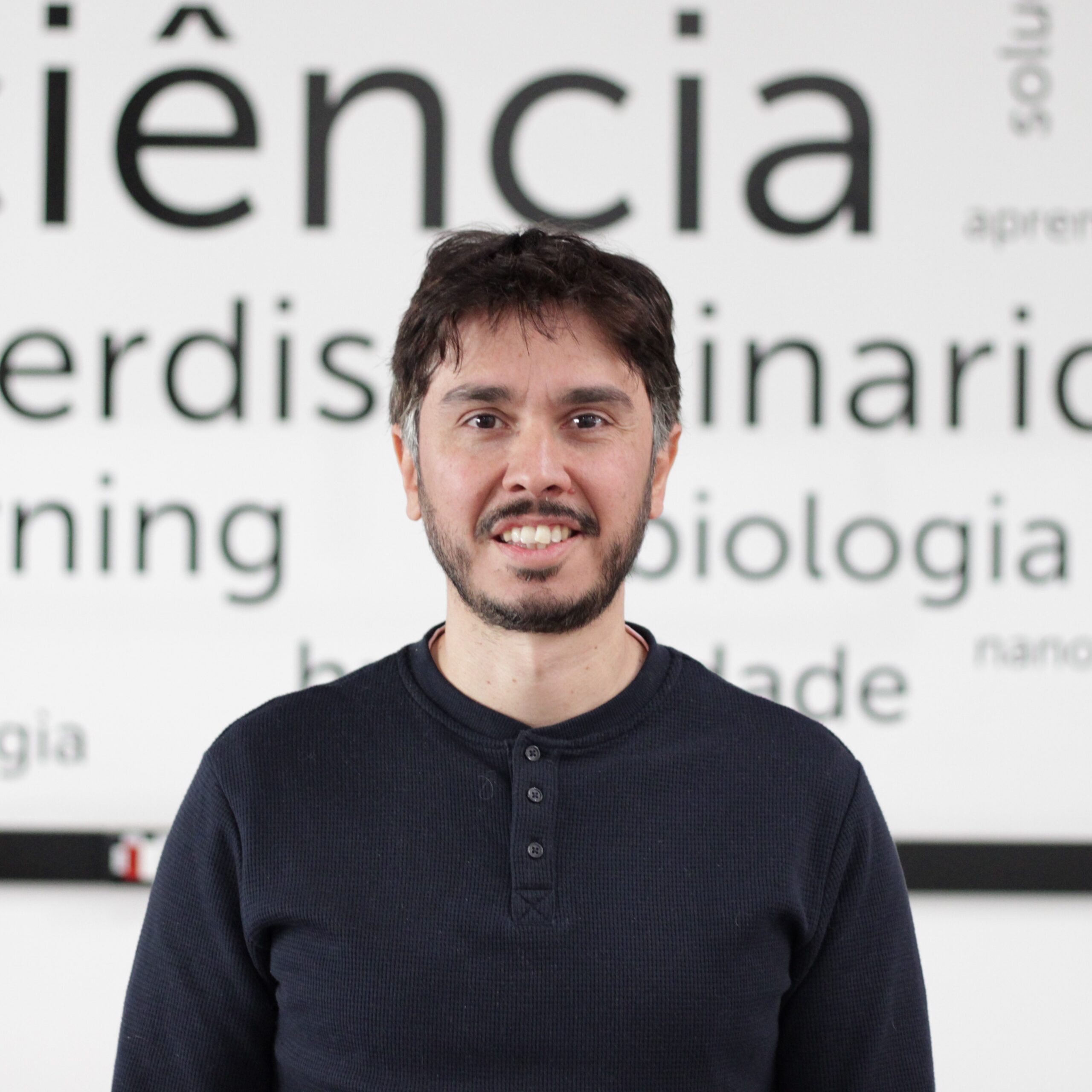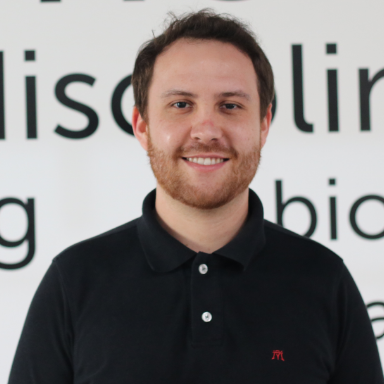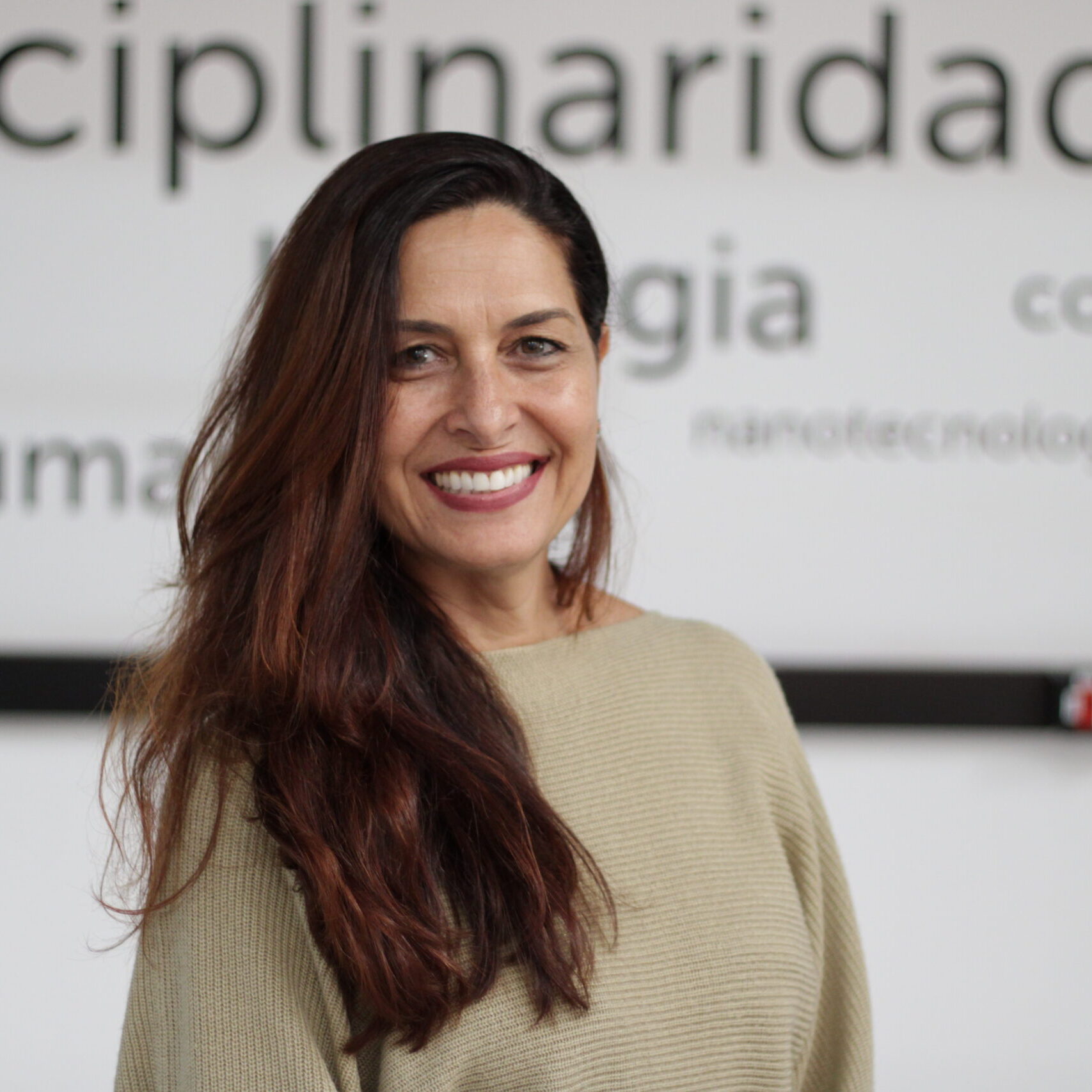Training scientists requires an integrated and consistent curriculum that is firmly rooted in an environment that encourages constant improvement. This is what Ilum offers: something unprecedented in Brazil, with an interdisciplinary full-time approach that values ethics in research.
Right from the first semester, students have an integrated experience immersed in the laboratories at CNPEM. They get a close look at scientists in action, with seminars by researchers and master classes and the chance to put everything they learn in the classroom into practice.
Learning to use cutting-edge equipment, testing theory in hands-on classes, and interacting with scientists who conduct advanced research provides early training that sends graduates into the job market prepared for research work in laboratories or the university setting.
The magazine entitled Por Dentro da Ilum [Inside Ilum] provides a more detailed introduction to the Ilum School of Science through statements from students and information about the program, its teachers, benefits, and student routines, for example.
Download the magazine:
*The Ilum
A unique and innovative post-secondary science school
Ilum
Committees
Selection Process Committee (CPS)
The Selection Process Committee (Comissão de Processo Seletivo, CPS) is responsible for developing, organizing, and carrying out the selection process in which students are admitted to Ilum.
The Selection Process Committee is made up of the following members:
- Nelson Studart – Academic Coordinator
- Valéria Spolon Marangoni – Research and Laboratory Coordinator
- Daniel Roberto Cassar
- Felipe David Crasto de Lima
- James Moraes de Almeida
Collegiate Committee
The Collegiate Committee is responsible for implementing and monitoring the curriculum, proposing changes, discussing related topics, as well as planning and evaluating the respective academic activities.
The Collegiate Committee comprises the following instructors:
- Prof. Nelson Studart – Academic Coordinator and Committee President
- Daniel Roberto Cassar
- Felipe David Crasto de Lima
- Hernandes Faustino de Carvalho
- Ivia Minelli
- James Moraes de Almeida
- José Mario Martinez
- Juliana Helena Costa Smetana
- Leandro das Merces Silva
- Leandro Nascimento Lemos
- Olga Russinova
- Valeria Spolon Marangoni
- Vinicius Francisco Wasques
Ilum Deliberative and Steering Committee (CONI)
This committee deliberates and provides guidance and strategy to assist and advise the Board of Directors. The representatives mentioned in Items V–VIII shall have a two-year mandate which always ends in March of odd years, and may serve multiple times. In the absence of the Director of llum, this Committee may be headed by the Research and Laboratory Coordinator. The Ilum Deliberative and Steering Committee (Conselho Deliberativo e Orientador da llum, CONI) comprises the following members:
- Adalberto Fazzio – Director, serves as President
- Nelson Studart Filho – Academic Coordinator
- Valéria Spolon Marangoni – Research and Laboratory Coordinator
- Vinicius Francisco Wasques – Faculty representative
- Leandro Nascimento Lemos – Faculty representative
- Gabriela Frajtag – Peer-selected faculty representative
- Alessandro de Souza Morato – Peer-selected technical and administrative staff representative
- João Batista Souza Junior -Representing the community outside llum, selected by the Director
- Veronica de Carvalho Teixeira – Representing the community outside llum, selected by the Director
Team
Learning about Ilum and CNPEM was very impressive for our students. This school is innovative for proposing learning methodologies that encourage (among other things) the development of competencies like teamwork, creativity, and enthusiasm for research, with the work guided by a highly qualified teaching staff. The laboratories are also very eye-catching, because of the modern…

The dream of many young people begins to come true: being scientists, researchers, taking an active role in their own education. Ilum, an interdisciplinary undergraduate program in science, technology and innovation at CNPEM, emerged to provide an opportunity to these future scientists. With an innovative model, active teaching methodology, emphasis on group work, and classroom…

Science is extraordinary, and through it we seek to understand and in many ways even transform the world that surrounds us. Ilum appeared on the Brazilian scene as an incredible proposal where every day interdisciplinary studies, research, practice and experience shape future scientists who will be able to take the lead in well-founded actions to…

Science is about nature, and uses a math as a language. What brings the two fields together are experiments, which describe phenomena via quantitative measurements, opening the doors to mathematical modeling. Traditionally, bachelor’s students in various sciences (physics, chemistry, biology) focus on learning from the models and measuring techniques in a certain discipline. Today, solving…

Brazilian undergraduate science education has a new star: Ilum. A model in which the student is more than just a player, they take the leading role in their own development. A model in which students don’t just talk about research, they conduct research. A model in which students want to learn, because they use what…
If I were in school right now, I would be going nuts to get into Ilum. We live in a world that is so disruptive that transformations are very frequent. What will make this leap possible for Brazil to increase competitiveness is technological development. Training professionals who have the scientific know-how and an entrepreneurial and…

The Ilum School of Science was born with an innovative and modern educational concept to meet Brazil’s need to train scientists that are well qualified in science and technology. The students begin their academic career focused on the learning needed to solve future problems in the areas of the environment, energy and health. They will…

In my opinion, one of the essential requirements for a scientific life is courage. Courage, curiosity and caring. Ilum, and the students who dedicate their lives to this idea, represent pure courage: courage to make it happen and then become part of the process so that everyone learns together. It’s like building wings when you’re…

Since its founding, CNPEM has carried a strong tradition in the scientific training of young talent through its schools and internship opportunities, such as the summer scholarship program. Going even farther and creating an interdisciplinary higher education program in science, technology, and innovation with an innovative teaching model seemed audacious and extremely challenging, but its…

Ilum offers a unique learning environment where students take an active role. The curriculum was carefully planned to shape professionals qualified to carry out the science of the future. Instead of conventional expository teaching, the content is presented through interactive activities that involve debate, problem solving, and digital resources. Hands-on classes use laboratories that are…

Ilum is an innovative initiative that offers young people a new, rich itinerary for science education. Teaching and learning take place within an active methodology environment with total immersion in the everyday research activities at CNPEM, a center that works at the cutting edge of science conducting research and developing instrumentation. And because it is…

When I see the infrastructure offered at Ilum, not just the school’s own facilities but also access to the CNPEM facilities, I imagine how these students will benefit as they work on their projects, with not only the equipment and workshops available to them but also a team of teachers and specialists who are just…

Having the opportunity to study in an environment like Ilum, where the students and professors are side by side, is very unique in higher education in Brazil. I’m certain that this experience will shape professionals who are very different from the status quo, and that this indeed is the future. Doing this within an ecosystem…

Having initiatives to train young people who are better prepared and motivated to accept the challenges society presents us is one of our most important missions to advance in the right direction. It is not enough to just educate, we need to educate well; it is not enough to just state information, we must train…

I was lucky to learn about the plan for the Ilum School of Science and see its early steps. Besides the pedagogical innovations, which are so crucial to shape modern scientists with a multidisciplinary spirit, what caught my attention was its purpose: to directly contribute to the development of science and technology in Brazil.As a…

We were pleasantly surprised and encouraged by the high standards and technical level of all the facilities and equipment at Ilum, as well as the faculty (which is highly qualified and consists of scientists and researchers with doctorates and postdoctorates), the classes offered, and the benefits provided to the students who are admitted. Educational initiatives…
What people are saying about Ilum
Frequently asked questions
What programs does Ilum offer?
The Ilum School of Science offers a Bachelor of Science and Technology program accredited by the Brazilian Ministry of Education and Culture and awarded the maximum score (5) by the national certifying agency (INEP).
How long is the program?
Three years, on a full-time basis.
Is there an age limit for admission?
There is no age limit. But like other undergraduate programs, candidates must complete high school before admission.
I didn't take the Brazilian high school completion exam (ENEM). Can I apply anyway?
No. ENEM score is one of the components of our selection process.
What is Ilum's admissions process like? Is there an entrance exam?
There is no entrance exam. Students are evaluated on a set of several criteria. During the first stage, candidates apply online via the Ilum site by sending a statement of interest in the online application; there is no application fee. In the second stage, candidates report their overall ENEM score and their test registration number. If applicable, in this stage they may also present documentation of national Olympiad medals (in mathematics, physics, chemistry, and biology). The Evaluation Committee will pre-select the candidates with the best evaluations in the previous stages, and invite them for individual interviews. These conversations will be recorded and analyzed by the Selection Committee.
Is the program free?
Yes, students do not pay to study at Ilum.
What benefits does the school offer?
- Free housing in studio apartments equipped with a bed, stove, refrigerator, laundry area, and air conditioning (Campinas residents must justify their need for housing).
- Free transportation is provided from student housing to Ilum and CNPEM during the academic year.
- Meal allowance for lunch during classes/activities at Ilum.
- Meal allowance card for other meals (Campinas residents must justify the need for this benefit).
- State-of-the-art laptop computer for exclusive personal use during the entire program, which comes installed with all the software necessary for academic activities.
- Free English lessons.
- Specialized psychological support.
- Assistance may be available to fund travel between the student’s home city and Campinas at the start of the academic year.
Do students have vacation? What benefits are continued during this period and at holidays?
Yes, students have vacations in July, December, and January; during vacation, students may remain in their housing, and continue to use their meal allowance card and computer. The on-campus meal allowance is maintained for students who remain at Ilum to participate in activities during vacations.
What are the CNPEM immersions like?
Students visit CNPEM from the first semester, where they participate in hands-on activities that complement their classes at Ilum, with access to the Center’s cutting-edge laboratories. In their final semester, students use the CNPEM labs to complete their final projects.
What areas do Ilum graduates work in?
Ilum’s alumni will have the knowledge and skills to follow various career paths. Those who plan to work in academia will be well prepared to apply directly to a doctoral program. They can also work as researchers in public, private, or industrial labs, as specialists in data science and machine learning, and run their own businesses as entrepreneurs establishing startups, for example.
What is the curriculum like?
Details of the curriculum can be found here. It spans the following areas:
- Life science: cell biology, molecular biology, biochemistry, ecology, genetics;
- Materials science: classical mechanics, thermodynamics, electromagnetism, quantum mechanics, organic systems, static mechanics, nanotechnology;
- Data science: machine learning, data mining, data analysis, computational logic, image processing;
- Math languages: linear algebra, statistical probability, calculus, intensive data science, analysis and modeling, machine learning, artificial intelligence;
- Humanities: modern science, ethics, the environment, culture, and society;
- Entrepreneurship: technological innovation.
Why the name Ilum?
Ilum derives from the word “illuminate,” and maintains the same meaning in shedding light, providing knowledge, and offering a superior multidisciplinary education in science via a unique, disruptive, and innovative teaching model. These are the pillars of Ilum, which was born from the desire to illuminate the path of curious young minds as they search for answers from science to the most complex questions the future poses.
Ilum was created at CNPEM, the home of Sirius, one of the world’s most modern particle accelerators, designed to generate powerful beams of light that can reveal the structure of organic and inorganic materials.
Ilum’s logo uses the image of light as electromagnetic waves to refer to the propagation of the learning process, which overcomes barriers in search of answers that are still unknown.
CNPEM: the country's most complex research infrastructure
With a sophisticated and vibrant environment for research and development that is the only one of its kind in Brazil and found in only a few scientific centers in the world, the Brazilian Center for Research in Energy and Materials (CNPEM) is a social organization overseen by the Ministry of Science, Technology and Innovation (MCTI). The Center operates four national laboratories and Sirius, the most complex project in Brazilian science and one of the world’s most advanced synchrotron light sources.
CNPEM is home to highly specialized multi-thematic teams, globally competitive lab infrastructure that is open to the scientific community, strategic lines of research, innovative projects in partnerships with the productive sector, and training for researchers and students.
The Center is an environment driven by research into solutions that impact the areas of health, energy and renewable materials, agri-environmental, and quantum technologies. In 2022, with support from the Brazilian Ministry of Education (MEC), CNPEM expanded its activities with the opening of the Ilum School of Science. This interdisciplinary program in science and technology implements innovative ideas to provide a high quality free and full-time undergraduate education immersed in the research environment at CNPEM.

